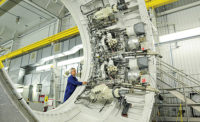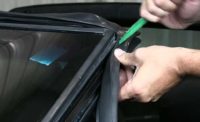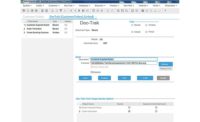Founded in 1947, HNI Corp. has grown into a premier manufacturer of office furniture, fireplaces and heating stoves. Since its inception, the company has focused on maximizing efficiency and providing high levels of quality and customer service.
HNI has numerous manufacturing plants, support facilities and distribution centers throughout the U.S. With a team of expert analysts and managers, the company manages 400 suppliers and procures 400,000 different parts.
“We identify local suppliers to support us in order to reduce transportation costs,” says Jay Senatra, supply chain director at HNI.
Managing the Complexities
HNI’s manufacturing process is about 95 percent build-to-order with a high number of SKUs and customizable options.
HNI began exploring LeanDNA’s analytics platform with the goal of helping analysts to identify issues early so the company could plan ahead and respond faster. LeanDNA’s platform improves on-time delivery, optimizes inventory and reduces operational costs by aggregating, sorting and organizing complex data sets automatically. By leveraging LeanDNA, HNI was able to save time, money and resources by alleviating the cumbersome task of manually exporting and analyzing stale spreadsheets.
As an Oracle user, HNI was drawn to LeanDNA’s ease of implementation, low cost and low risk. “No other solutions offered this,” says Senatra. “Every other solution we explored was an enterprise-wide solution. We needed a very specific solution and needed it quickly. LeanDNA met that requirement.
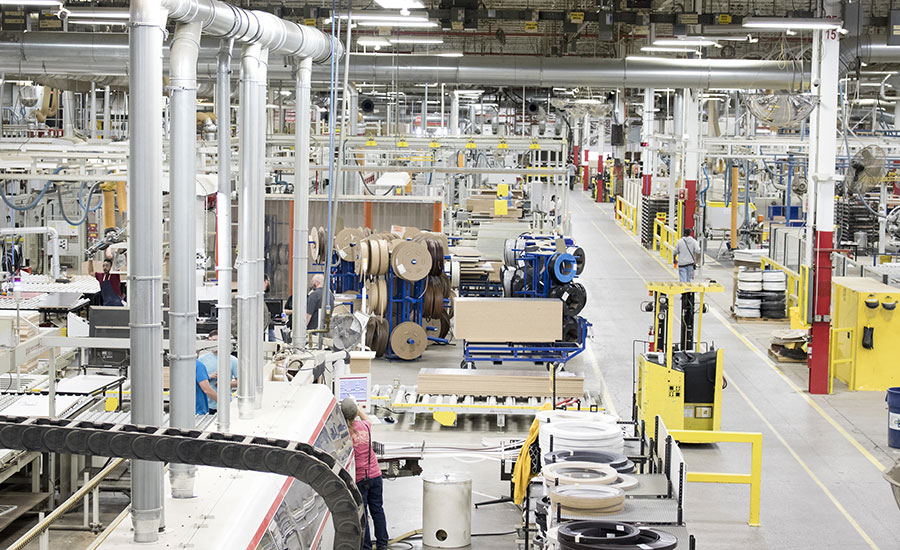
HNI’s manufacturing process is about 95 percent build-to-order with a high number of SKUs and customizable options. Photo courtesy HNI Corp.
Two Distinct Challenges
HNI had two distinct challenges to address: planning and execution.
Planning was a challenge because HNI analysts were overloaded with the cumbersome task of manually managing disorganized, hard to digest, complex data sets through traditional spreadsheets.
“Our analysts spent a lot of time getting the data cleaned up so that we could actually use it,” Senatra explains. “As we reanalyzed our parts year after year, it was taking us three to four months to manually go through all 400,000 parts.”
Execution was a challenge because of the company’s complex product mix. The company’s seating business alone offers 50,000 different fabrics that customers can buy. HNI also offers several thousand different finishes for all of the wood desks, credenzas, filing cabinets and other products that it makes.
“We offer a lot of special, unique and different designs across our product lines, all of which add to the complexity of our operations,” says Senatra. “Our analysts were spending 80 percent of their time cleansing and massaging the data, and 20 percent actually analyzing it and making decisions. We wanted to flip that.”
HNI integrated LeanDNA’s inventory platform to alleviate those challenges and reduce manual processes, enabling employees to shift their focus to higher valued tasks and operate more efficiently to increase on-time deliveries.
By using the software, HNI was able to proactively manage inventory and minimize the impacts of shortages to save money and resources.
“We now have days or even weeks to solve problems before they happen, vs. having to solve the issues after they’ve occurred,” says Senatra. “We can get a sense of where the trend is heading and get in front of it.”
LeanDNA’s platform has helped prioritize exception alerts by relevancy to save time and allow the procurement team to focus on higher valued tasks such as purchase order management, exception management, inventory strategy and delivery, and plan for every part governance.
The procurement team benefits from the platform through its automated filtering of excessive, unnecessary alerts. “Now LeanDNA handles the heavy lifting,” says Senatra. “You just open a report, and the shortage list is right there.”
Through this feature, the team reduced repetitive tasks, which saved time and enabled them to focus on more important matters.
“We have great members, but they’re human beings and humans make mistakes from time to time,” Senatra adds. “It was up to them to populate a spreadsheet with a list of parts that were most important and also use a ‘manual shortage’ list. That meant running an Oracle report, creating a pivot table, slicing and dicing the data, and then populating the shortage list.”
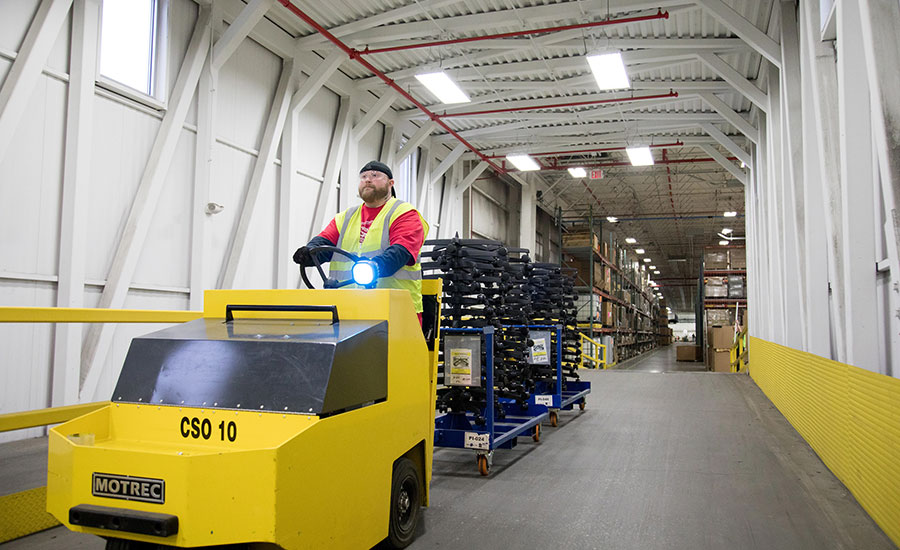
LeanDNA’s analytics platform helps HNI analysts identify issues early so the company can plan ahead and respond faster. Photo courtesy HNI Corp.
Efficient Resource Management
Most U.S. manufacturers added headcount during the global pandemic to keep up with demand for their products. However, HNI was able to maintain the same headcount, and even dedicate some of its members to implement continuous improvement initiatives around supplier risk, inventory targets and solving technical issues.
“Our supply chain is in a much better place than it was during the early stages of the pandemic,” says Senatra. “LeanDNA helped lessen the pain and get us out of that trough.”
LeanDNA provides comprehensive shortage visibility, which allows HNI to accurately assess, identify and manage inventory to improve on-time delivery.
“LeanDNA has also improved supplier on-time delivery and provided better visibility into which parts are falling below inventory targets,” Senatra says. “The system was fairly easy to get up and running, which can be attributed to HNI’s quickly achieved return on investment.”
Since implementing the platform, the company has already achieved significant results, with plans to continue enhancing processes by identifying and addressing demand spikes that are three times the standard deviation greater than the mean.
“We’re incrementally building one process on top of the next, knowing that if we keep suppliers’ inventory healthy, we won’t need to worry about whether they can deliver on time,” says Senatra. “As long as we have the inventory, we can hit our own order dates.”
The company is currently using application programming interfaces to integrate additional applications with LeanDNA to further improve in other areas.
ASSEMBLY Online
For more information on ERP software, read these articles:
Johnson Controls and LeanDNA Build Digital Thread
Meeting the Challenge of Implementing AI
Industry 4.0 for the Small Shop

